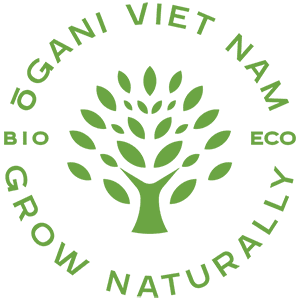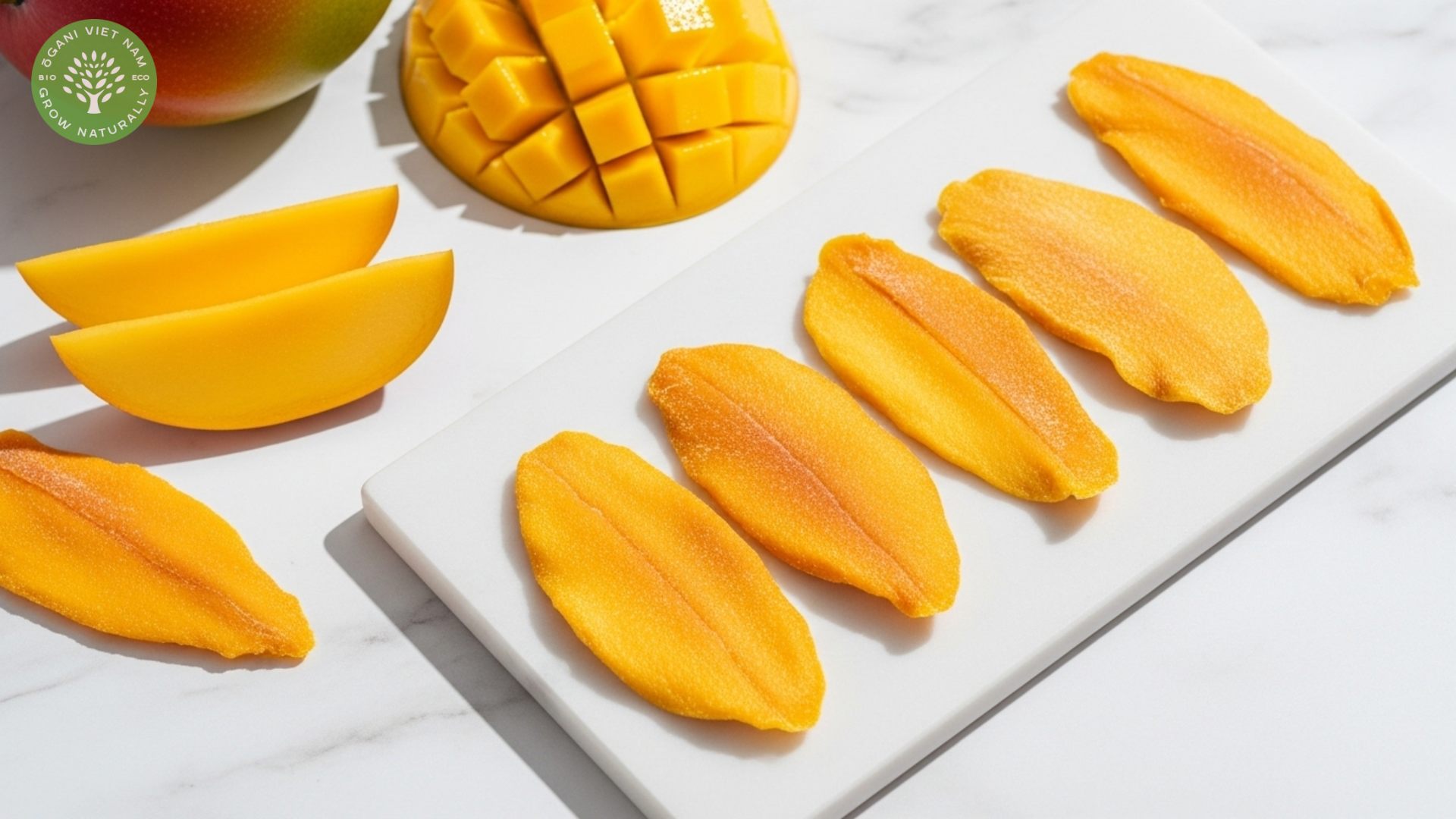Benefits Of Dried Mango Fruit are truly exceptional, encompassing high vitamin C content, dietary fiber, and powerful antioxidants that support immune function and digestive health. At Ogani VN, we’ve discovered that understanding the complete nutritional advantages of this tropical superfood helps consumers make informed choices about a snack that provides concentrated nutrients while offering convenient, shelf-stable storage. Through careful research and sourcing, we bring you premium dried mango that maximizes these health benefits in every serving.
Essential Nutritional Benefits Of Dried Mango Fruit
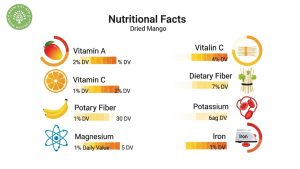
Dried mango fruit contains an impressive array of vitamins and minerals that make it a nutritional powerhouse. Each serving delivers substantial amounts of vitamin A, supporting eye health and immune function, while vitamin C acts as a potent antioxidant protecting cells from oxidative stress.
The concentration process intensifies these nutrients, making dried mango particularly rich in dietary fiber. This fiber content promotes healthy digestion and helps maintain stable blood sugar levels throughout the day. Additionally, dried mango provides essential minerals including potassium for heart health, magnesium for muscle function, and iron for oxygen transport.
What sets dried mango apart from other dried fruits is its unique blend of carotenoids, particularly beta-carotene, which gives the fruit its vibrant orange color. These compounds convert to vitamin A in the body, supporting vision and cellular health. The natural sugars present provide quick energy, making dried mango an excellent pre-workout snack or afternoon energy boost.
Antioxidant Benefits Of Dried Mango Fruit For Disease Prevention

The antioxidant profile of dried mango is truly remarkable, featuring mangiferin, polyphenols, and various flavonoids that combat free radical damage. These bioactive compounds work synergistically to reduce inflammation throughout the body and may help prevent chronic diseases.
Research indicates that the antioxidants in dried mango may offer protection against certain types of cancer, particularly breast, colon, and prostate cancers. The polyphenolic compounds neutralize harmful free radicals that can damage cellular DNA and trigger cancerous changes. Regular consumption of antioxidant-rich foods like dried mango supports the body’s natural defense mechanisms.
The anti-inflammatory properties of these antioxidants also benefit cardiovascular health by reducing oxidative stress on blood vessels and supporting healthy circulation. Studies suggest that mangiferin, the signature compound found in mangoes, may help regulate cholesterol levels and support overall heart health when consumed as part of a balanced diet.
Digestive Health Benefits Of Dried Mango Fruit
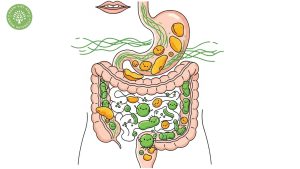
The digestive advantages that come with consuming dried mango are multifaceted and impressive. Understanding how this tropical treat supports your gut health can help you make better dietary choices for overall wellness.
Fiber content and digestive support
Dried mango serves as an excellent source of both soluble and insoluble fiber, with each serving providing approximately 20% of the daily recommended intake. Soluble fiber forms a gel-like substance in the digestive tract, slowing digestion and helping regulate blood sugar levels while promoting feelings of satiety.
Insoluble fiber adds bulk to stool and promotes regular bowel movements, preventing constipation and supporting overall digestive health. This combination makes dried mango particularly beneficial for individuals seeking to improve their digestive function naturally.
Prebiotic effects and gut microbiome
The natural sugars and fiber in dried mango act as prebiotics, feeding beneficial bacteria in the gut microbiome. A healthy gut microbiome is essential for optimal digestion, nutrient absorption, and immune function. The prebiotic effects of dried mango help maintain this delicate bacterial balance, supporting overall wellness from within.
Energy-Boosting Benefits Of Dried Mango Fruit For Athletes

Dried mango provides natural, quick-releasing energy through its concentrated fruit sugars, making it an ideal choice for athletes and active individuals. Unlike processed energy bars or synthetic supplements, dried mango delivers sustained energy without the crash associated with refined sugars.
The potassium content in dried mango supports proper muscle function and helps prevent cramping during physical activity. This mineral works alongside magnesium to maintain electrolyte balance, crucial for optimal athletic performance and recovery. The natural sugars replenish muscle glycogen stores, making dried mango an excellent post-workout recovery snack.
Many athletes appreciate the portability and shelf-stability of dried mango, allowing them to maintain energy levels during long training sessions or competitions. The combination of natural sugars, fiber, and essential minerals provides sustained energy release without digestive discomfort often associated with processed energy foods.
How To Maximize Benefits Of Dried Mango Fruit Consumption
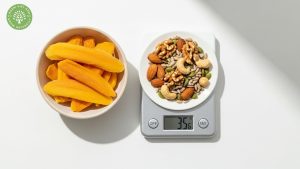
While dried mango fruit offers numerous health advantages, mindful consumption is key to maximizing its nutritional value. A typical serving size of 30-40 grams provides optimal benefits without excessive calorie intake. This portion delivers approximately 100-120 calories along with significant amounts of vitamins, minerals, and fiber.
We recommend incorporating dried mango into your daily routine as a mid-morning or afternoon snack, paired with nuts or seeds for added protein and healthy fats. This combination creates a more balanced snack that provides sustained energy and enhanced satiety. Avoid consuming large quantities at once, as the concentrated sugars can cause digestive discomfort in some individuals.
For those monitoring blood sugar levels, enjoying dried mango with protein-rich foods helps moderate glucose absorption and prevents rapid spikes in blood sugar. The fiber content naturally slows sugar absorption, but combining with complementary foods enhances this effect further.
Frequently Asked Questions
How much dried mango should I eat daily? A healthy serving size is 30-40 grams (about 1/4 cup) per day, providing optimal nutritional benefits without excessive sugar intake.
Is dried mango better than fresh mango nutritionally? Both forms offer unique advantages. Dried mango provides concentrated nutrients and longer shelf life, while fresh mango contains higher water content and vitamin C levels.
Can diabetics safely consume dried mango? Diabetics can enjoy dried mango in moderation as part of a balanced meal plan, preferably paired with protein or healthy fats to moderate blood sugar response.
Does the drying process destroy nutrients in mango? Some water-soluble vitamins may decrease during drying, but many nutrients become concentrated, and the fiber, minerals, and antioxidants remain largely intact.
Is organic dried mango worth the extra cost? Organic dried mango eliminates exposure to synthetic pesticides and often contains no added sugars or preservatives, making it a cleaner choice for health-conscious consumers.
Make Dried Mango Your Go-To Healthy Snack
The benefits of dried mango fruit extend far beyond its delicious tropical flavor, offering a convenient way to boost your daily nutrition with essential vitamins, minerals, and powerful antioxidants. From supporting digestive health and immune function to providing natural energy for active lifestyles, dried mango proves itself as a valuable addition to any healthy diet.
At Ogani VN, we encourage you to explore our premium selection of organic dried mango products, carefully sourced and processed to preserve maximum nutritional value. Contact our nutrition specialists today to learn more about incorporating this superfood into your wellness routine and discover which dried mango variety best suits your dietary needs and taste preferences.
Read more:
